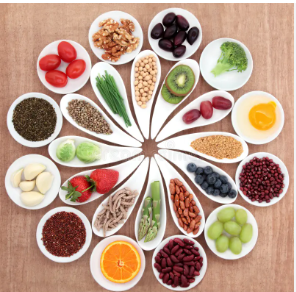

1. Myth: Carbs Make You Fat
Reality: Carbohydrates are an essential part of a balanced diet. It’s the type and quantity of carbs that matter. Whole grains, fruits, and vegetables provide necessary nutrients and fiber. Overeating refined carbs, like those found in sugary snacks and white bread, can lead to weight gain.
2. Myth: All Fats are Bad
Reality: Fats are a vital part of your diet, providing energy and supporting cell growth. Unsaturated fats (found in nuts, seeds, avocados, and fish) are beneficial for heart health. It’s the trans fats and excessive saturated fats (found in processed and fried foods) that should be limited.
3. Myth: You Need to Detox Your Body
Reality: Your body naturally detoxes through the liver, kidneys, and other organs. There is no scientific evidence supporting the need for detox diets or cleanses. Eating a balanced diet, staying hydrated, and getting regular exercise are effective ways to support your body’s natural detox processes.
4. Myth: Supplements Can Replace Food
Reality: Supplements can be helpful in addressing specific nutrient deficiencies, but they cannot replace the variety of nutrients and benefits provided by whole foods. A diet rich in fruits, vegetables, whole grains, and lean proteins is essential for overall health.
5. Myth: You Should Avoid All Sugar
Reality: Naturally occurring sugars found in fruits, vegetables, and dairy are part of a healthy diet. The concern lies with added sugars found in processed foods and sugary beverages. Moderation is key, and it’s important to focus on the overall quality of your diet.
6. Myth: Skipping Meals Helps with Weight Loss
Reality: Skipping meals can lead to overeating later and negatively impact your metabolism. Regular, balanced meals help maintain energy levels and support healthy weight management. It’s better to eat smaller, more frequent meals if you struggle with portion control.
7. Myth: Eating Late at Night Causes Weight Gain
Reality: It’s not the timing of your meals but the total calorie intake and food choices that matter most. Eating a heavy, calorie-dense meal late at night might contribute to weight gain if it exceeds your daily calorie needs. Focus on balanced meals throughout the day.
8. Myth: You Need to Drink 8 Glasses of Water a Day
Reality: Hydration needs vary depending on factors like age, activity level, and climate. A general guideline is to drink when you’re thirsty and ensure your urine is light yellow. Foods with high water content, like fruits and vegetables, also contribute to your hydration needs.
9. Myth: Protein is Only for Bodybuilders
Reality: Protein is essential for everyone, not just athletes. It supports muscle repair, immune function, and hormone production. Include a variety of protein sources in your diet, such as lean meats, dairy, beans, and nuts.
10. Myth: Gluten-Free Diets are Healthier for Everyone
Reality: Gluten-free diets are necessary for individuals with celiac disease or gluten sensitivity. For others, gluten-free products can sometimes be less nutritious and higher in sugar and fat. Whole grains containing gluten, like wheat, barley, and rye, offer important nutrients.
Conclusion
Understanding the facts behind these common nutrition myths can help you make informed decisions about your diet and overall health. Focus on balanced, nutrient-rich foods, and listen to your body’s needs for the best results.
